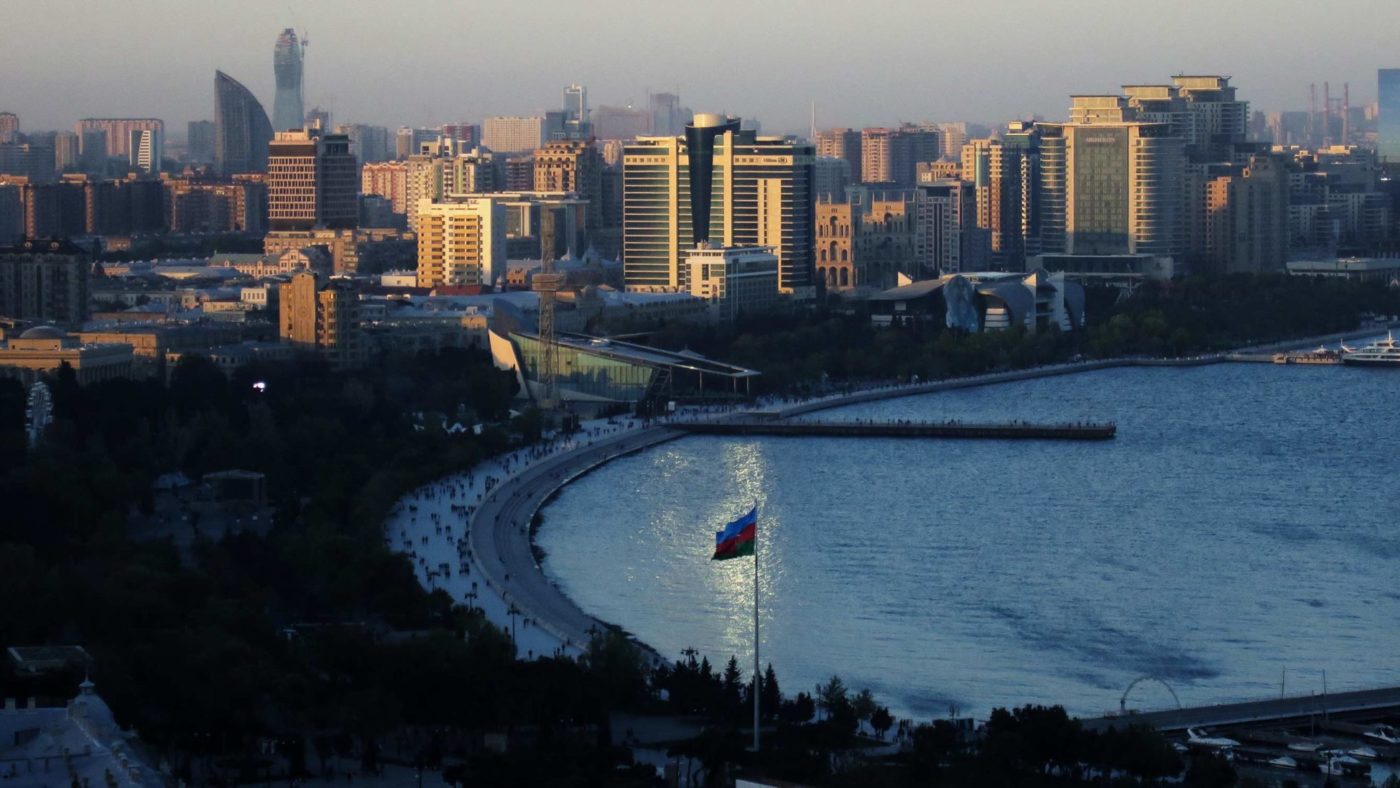With everything else going on at the moment, few in the West will have noted Sunday’s parliamentary elections in Azerbaijan. But given the country’s strategic location in a volatile region and its role as a secure energy provider to Europe, we really ought to be paying attention. That strategic importance will be underlined later this year when the new Trans Adriatic Pipeline (TAP) is scheduled to start pumping Azerbaijani natural gas to Europe , tracing a route to the heel of Italy via Turkey, Greece and Albania.
What hasn’t been widely reported yet is how Azerbaijan itself is diversifying its economy, moving away from its excessive reliance on the energy sector, a situation that means oil and gas represent a whopping 75% of government revenue. While Azerbaijani oil production has fallen over the last decade, it was the global crude oil plunge of 2014 that really refocused minds in Baku – as well as leading the country’s central bank to devalue its currency, the Manat.
A reform process spearheaded by President Ilham Aliyev to boost the country’s non-energy sector has seen a number of high-profile ministers and administrators dismissed, while younger, Western-trained politicians were promoted. A good example is the US-educated Economy Minister, Mikayil Jabbarov, who is also responsible for taxation and the privatisation of state enterprises.
There is already evidence that the reforms are paying dividends. The World Bank’s Doing Business Index ranked Azerbaijan among the top 20 reformers in the areas of registering property, obtaining credit, protecting minority investors and enforcing contracts, and the country’s overall ranking is 34th out of 190 countries.
Sunday’s elections were in keeping with this reform process, with the old guard making way for a younger group of legislators. Once again, President Aliyev’s ruling New Azerbaijan Party (YAP) obtained an absolute majority of seats.
Democracy watchdogs have raised serious concerns raised over human rights. With regards to the recent election, opposition politician Hasanguliyev Gudrat, whose Popular Front party is a member of the AECR (a group created by the UK Conservatives), has pointed out that some progress has been made compared to previous elections. This time, for instance, he says there were no complaints about candidates being blocked from appearing on the ballot.
Like the other opposition parties, Popular Front wants the country to move from a presidential to a parliamentary system, like its Caucasian neighbours Georgia and Armenia. It has also pointed out that strengthening the non-energy sector of the economy and promoting sustainable investment will only be possible with judicial reforms, such as appointing judges for life.
From a geopolitical point of view, Azerbaijan faces the challenge of an unstable neighbourhood: to the north lie the volatile Russian republics of Dagestan and Chechnya, to the south Iran and Iraq and to the west Armenia, with whom Azerbaijan has long been mired in conflict over the disputed region of Nagorno-Karabakh.
Still, Azerbaijan itself is a stable country and staunch ally of the West, including Israel. Though a Muslim-majority country, Azerbaijan also has a Jewish minority, which enjoys a peaceful co-existence. People are largely secular, even if there are some concerns over “radicalisation” resulting from Iranian intervention.
For all these positive signs, it remains to be seen whether the new generation of politicians will manage to modernise the economy and ween Azerbaijan off its dependency and oil and gas.
They could do worse than compare notes with their neighours in Georgia, even if many Azerbaijanis would not intuitively consider their poorer neighbour a model. Fifteen years ago, a bunch of free market reformers, led by Economy Minister Kakha Bendukidze, introduced radical measures, cutting income, payroll, and other taxes, reducing customs tariffs, and scrapping nearly 800 government licenses and permits, while turning donors of development aid away. The ensuing double-digit economic growth resulted in a tripling of the government budget, while corruption was also dramatically reduced. Fewer government permits simply meant fewer opportunities for bribery.
Though there is understandable scepticism about the pace of reform in Azerbaijan, the fundamental drivers moving the country away from dependency on energy are not going anyway. The reformers have a fair wind – they must seize their opportunity.
Click here to subscribe to our daily briefing – the best pieces from CapX and across the web.
CapX depends on the generosity of its readers. If you value what we do, please consider making a donation.


